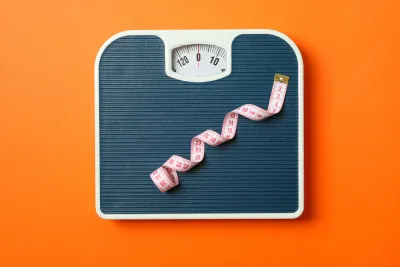
Key Takeaways
Sleep is when recovery actually happens—your body and brain use it to repair, reset, and prepare for what’s next.
- Quality sleep [supports physical recovery](/post/why-sleep-affects-training-performance) by driving muscle repair, tissue growth, and inflammation control.
- Athletes and active individuals who prioritize sleep often see gains in strength, endurance, reaction time, and overall performance.
- Sleep restores mental clarity and emotional resilience, helping you stay focused, motivated, and mentally sharp after physical or emotional strain.
- Deep sleep is when most recovery processes occur, making consistent, uninterrupted sleep a key part of any recovery plan.
When an injury occurs, our focus naturally shifts toward physical therapy, medication, and rehabilitation exercises to regain our strength and mobility.
However, we often overlook sleep's critical role in recovery. Sleep is a fundamental aspect of our body's healing process, and neglecting it can significantly slow or impede our recovery. Recommended sleep amounts by age vary and change over a person's lifetime, underscoring the need to tailor sleep habits to individual needs.
Below, we will explore why sleep is crucial for muscle injury recovery and how it facilitates the healing process.
The Science Behind Sleep and Recovery
During sleep, our bodies release human growth hormone (or HGH), critical for tissue repair and muscle growth, laying the foundation for healing and muscle recovery. Research shows the body makes important hormones like growth hormone and cortisol during sleep, which are essential for recovery and stress regulation.
This rest period allows our cells to mend, tissues to renew, and organs to recuperate, effectively allowing the body to recover from injuries. The nervous system also plays a key role during sleep, as it regulates processes that calm the body and support muscle repair.
A night's sleep consists of several sleep cycles, each lasting about 90 to 120 minutes, and progressing through these cycles is vital for optimal healing. The sleep period, which includes multiple stages such as REM and non-REM sleep, is important for full recovery.
Read More: Unlocking Peak Performance: The Role of Sleep in CrossFit
Sleep deprivation interferes with this crucial process, potentially prolonging recovery periods due to the body’s struggle to repair damaged tissues and muscles.
Along with muscle repair, sleep significantly impacts immune system regulation. As we sleep, our bodies generate cytokines, crucial proteins that battle infections, reduce inflammation, and promote the healing of muscle damage. Sleep benefits the immune system by reinforcing and regulating bodily functions, helping to maintain overall good health.
Sleep also increases the production of white blood cells (leukocytes) and natural killer (NK) cells, which are essential for early defense against pathogens. These cytokines and cells are necessary for the body’s healing process, helping to fend off illnesses and stimulate faster recovery.
Non-rapid Eye Movement
Sleep is structured into two categories: REM sleep and non-REM (NREM) sleep, each playing distinct roles in the sleep cycle. NREM sleep, also known as Non-Rapid Eye Movement sleep, is a naturally occurring phase of sleep that enhances performance. It constitutes the majority of total sleep time, and the deepest stage of NREM sleep is anabolic, which means it promotes muscle, tissue, and energy building.
During NREM sleep, stage 2 marks light sleep—a transition phase where the brain slows down but fires off quick bursts of activity that help you drift off more easily. While in light sleep, brain waves slow, marking the transition into deeper sleep stages. These changes in brain wave patterns are significant for memory organization and overall brain function.
During NREM sleep, the body replenishes energy reserves that were used throughout the day, catalyzes muscle recovery, and initiates hormone-driven recovery. At this time, the body’s metabolism slows down by up to 10%. This helps your body restore energy reserves more efficiently. These natural patterns in sleep architecture are essential for supporting recovery and maintaining overall health.
Rapid Eye Movement (REM sleep)
REM sleep serves a critical role in managing emotions. [1]. During this stage, heightened amygdala activity, a brain region associated with emotions, facilitates the processing of emotional responses. The vivid dreams commonly experienced during the REM stage are believed to contribute to this emotional regulation. [2]
The REM stage is characterized by muscle atonia, or temporary muscle paralysis, and increased brain activity, which are unique physiological features of this sleep phase. Blood pressure also rises during REM sleep, supporting cardiovascular health and recovery.
In addition to emotional processing, REM sleep plays a crucial role in memory consolidation. At this stage, the brain sorts through recent information and motor skills, deciding which memories to keep for the long haul and which to clear out. Some memory consolidation also occurs during deep sleep (a non-REM sleep stage).
Did You Know: During REM sleep, brain activity looks very similar to patterns seen when you’re awake, and this stage is most associated with vivid dreaming.
Emotional processing and memory consolidation are crucial for the body’s healing capabilities as healing goes beyond just physical cell and tissue repair.
Enhance Your Sleep for Effective Recovery with Chilipad
Discover the secret to a more effective recovery – a good night's sleep! Integrate the innovative Chilipad into your bedtime routine and experience unparalleled sleep quality.
Benefits of Sleep When Recovering from Injury
Now that we understand the science of how sleep assists in healing, we’re going to look into sleep’s specific benefits for recovering from an injury. Quality sleep is especially important for recovery after physical activity, such as exercise or sports injuries, as it promotes healing and helps prevent further injury.
Including good sleep hygiene practices—such as maintaining a consistent sleep schedule and creating a restful environment. Sleep hygiene can further support recovery and enhance the benefits of sleep during injury rehabilitation. Understanding these benefits can significantly impact how we approach recovery strategies.
Enhances Healing and Repair
As we enter the deep sleep stage, our bodies enter a state of deep relaxation, allowing for increased blood flow to injured areas. This increased blood flow delivers essential nutrients and oxygen to the damaged tissues, helping the muscle heal faster.
In most instances, an increased flow of blood leads to the regeneration of cells. During deep sleep, blood pressure decreases, supporting cardiovascular recovery and overall healing.
A full sleep period includes multiple stages, such as REM and non-REM sleep, each contributing to the healing process. The amount of time slept in deep sleep stages is crucial for optimal recovery, as this is when the body repairs and restores itself most effectively.
Did You Know: Your muscles need at least 7 hours of sleep per night to recover and grow properly, as your body processes less protein (the building blocks of muscles) when sleep-deprived. [3]
Read More: Try these expert-backed tips to help you get more deep sleep, recover better, and wake up actually refreshed.
It also helps reduce inflammation, which is a typical response to injury. Inflammation can delay the healing process, and sufficient rest can help control and minimize it.
Strengthens Your Immune System
Getting sufficient sleep is important for immune function. When sleeping, our body releases cytokines, proteins that help fight illness and inflammation. These cytokines work together to promote healthy immune function and protect our body from harmful pathogens.
Research has shown that lack of sleep can decrease cytokine production, leaving us more vulnerable to infections and illnesses. [4] Plus, sleep deprivation can lead to an increase in inflammation, which can exacerbate chronic health conditions and delay recovery from illness or injury.
But the right amount can boost our immune system, allowing our body to fight infections more effectively and reduce inflammation. This is particularly important during recovery from illness or injury, as we need all available resources to heal and repair ourselves.
Insufficient sleep can weaken the immune system, increasing the higher risk of infection and slowing down the healing process. This highlights the crucial role of sleep in overall health and recovery.
Enhances Pain Management
Effective pain management is important for injury treatment, and quality sleep can be a strong tool in this fight. While we sleep, our bodies produce endorphins, which are natural painkillers. These endorphins bind to specific receptors in the brain and block pain signals, supplying much-needed relief to the injured area.
It not only produces endorphins but also helps reduce inflammation and pain sensitivity. When we are sleep-deprived, our bodies release stress hormones that can actually increase our pain sensitivity. This means that even minor injuries can feel more intense and uncomfortable than they would if we were well-rested.
The right amount can help our body cope better with discomfort and promote the healing process. Research indicates that individuals who obtain sufficient sleep tend to recover from injuries at a faster rate compared to those who do not. [5]
It's important to prioritize sleep as part of your training and recovery plan after an injury. By giving your body the time and rest it needs, you can help reduce pain and discomfort and speed up your recovery.
Did You Know: Sleep deprivation can reduce muscular endurance and strength, delay muscle recovery, increase injury risk, and stunt muscle growth.
Glycogen Replenishment
Getting enough sleep is crucial for replenishing your muscles' glycogen stores. Glycogen is the stored form of glucose, which produces energy for muscle contractions during moderate or high-intensity exercise.
When you sleep, your body restores glycogen levels, ensuring that your muscles have enough fuel for optimal performance.
Read More: Want to build muscle while you sleep? We've included tips on how to boost recovery, support muscle growth, and make your nightly rest work harder for your gains.
Hormonal Regulation
Sleep plays a crucial role in balancing hormone levels that aid in muscle recovery. The body's internal clock, or circadian rhythm, regulates hormone production during sleep, ensuring optimal release of key hormones. The hormone testosterone, essential for muscle growth and repair, is mostly released while in Deep Sleep.
Inadequate sleep can lead to disruptions in testosterone production, potentially delaying the process of muscle recovery. Plus, sleep helps control hunger by regulating hormones like leptin and ghrelin, which manage appetite and prevent overeating.
Supports Mental Health
Recovering from an injury can be mentally demanding, as it can involve physical limitations and lifestyle changes. Sleep deprivation can cause mood swings, feeling irritable, and increased stress levels, among other factors, which can interfere with the recovery process. [6]
On the other hand, getting quality rest promotes emotional stability, reduces stress, and enhances overall mental health. It allows the body and mind to rejuvenate, making it easier to manage the challenges of injury recovery.
Increased Energy Conservation
When you sleep, your body conserves energy. This energy conservation is necessary when you're recovering from an injury. Rather than powering daily tasks like walking, talking, or thinking, this conserved energy shifts toward repair and recovery. Sleep also helps the body process and respond to exercises and treatments during the day, allowing recovery efforts to be maximized.
While sleeping, the body's metabolic rate slows down, reducing the demand for energy. This slower pace allows more energy to be available for the required tasks of repairing damaged tissues, fighting off infection, and regenerating cells.
This process is why you often feel like you need to rest or want to sleep more when sick or injured. Your body instinctively conserves and redirects energy to support the healing process. Prioritizing sleep during recovery gives your body the resources to heal more efficiently and effectively.
Sleep Deprivation on Recovery
Proper rest can significantly impact cognitive function, including essential abilities such as focus, decision-making, and memory retention. Sleep deprivation can disrupt your sleep cycles and trigger REM sleep rebound, which may cause moodiness and slow down recovery.
These cognitive abilities can be especially crucial when managing treatment and rehabilitation. They allow individuals to process information better, make informed decisions about their health and recovery, and recall crucial details such as medication schedules and rehab instructions.
The lack of sleep can blur thinking and impair concentration, potentially hindering your recovery progress. Chronic sleep deprivation can also lead to health problems, including increased risk of cardiovascular disease, weakened immune function, and metabolic issues. Some people may require more sleep during recovery, and this is normal as the body works to heal and restore itself.
Did You Know: The American Heart Association added sleep duration to its list of critical components for optimizing heart and brain health due to the overwhelming evidence linking poor sleep to poor health.
Research has shown that consistent and adequate sleep can improve cognitive function and overall brain health, leading to better outcomes in various aspects of life. [7]

Tips for Better Sleep During Injury Recovery
After discussing sleep’s benefits and significance in the recovery process, let’s explore practical recovery techniques.
Establish a Consistent Sleep Schedule
Maintaining a consistent sleep schedule is an important factor in a successful full recovery strategy. This can be accomplished by going to bed and waking up at the same times daily, including weekends.
This regularity not only makes it easier to fall asleep and wake up but also provides restful, restorative sleep, aiding in your body's healing process. Consistent patterns can reduce issues like insomnia, contributing to a smoother recovery.
Read More: How Poor Sleep Affects Athletic Performance
Create a Sleep-Friendly Environment
Make sure your bedroom is dark, quiet, and at a comfortable temperature. Use blackout curtains, comfortable earplugs, or pink noise machines if necessary to help you get enough quality sleep.
Practice Relaxation Techniques
Engage in activities that promote relaxation before bedtime. These activities can include reading a book or magazine, taking a warm bath, or practicing deep breathing exercises.
Avoid Stimulants and Depressants
It's recommended to limit your consumption of caffeine, nicotine, and alcohol, as they can negatively impact the quality of our sleep by disrupting your sleep patterns.
Limit Screen Time Before Bed
Blue light emitted from screens is disruptive to sleep. It's best to avoid using electronics at least an hour before bedtime. Learn more about how blue light can affect sleep.
Final Thought
Elite athletes and beginners alike understand that injury and muscle recovery are complex processes, and sleep plays a crucial role in their success. By prioritizing sleep as an integral part of your recovery plan, you can better understand its importance to help promote healing.
Adequate sleep promotes faster healing and muscle recovery, enhances pain management, supports mental health, and contributes to a smoother healing journey. So, if you're on the path to explore recovery options, don't underestimate the power of a good night's sleep.
If you suspect a sleep disorder is affecting your recovery, such as obstructive sleep apnea or restless leg syndrome, it’s important to consult a healthcare professional. These common sleep disorders can disrupt sleep quality and reduce restorative sleep. Sleep medicine is a specialized field focused on diagnosing and treating sleep disorders, helping individuals restore healthy sleep patterns and improve overall well-being.
Make sleep a priority and practice good sleep hygiene to give your body the rest it needs to heal and recover effectively. Remember, it's worth noting that whatever your athletic or fitness goals, effort and consistency are crucial.
Frequently Asked Questions About Sleep’s Role in Recovery
What Is the Best Sleep Position for Injury Recovery?
The best sleep position depends on your injury. For example, with back injuries, sleeping on your back with a pillow under your knees can help reduce pain. For leg injuries, elevating the injured leg may reduce swelling.
Can Poor Sleep Slow Down the Healing Process?
Yes, inadequate sleep can impair your body's ability to repair tissues, increase inflammation, and prolong recovery time.
Does Sleeping More Help Injuries Heal Faster?
You might think that sleeping all day is the best way to recover, but understanding how much sleep is necessary is key to effective recovery. While you don't want to push yourself too hard, getting enough good quality sleep is important for your body to heal.
Think of it like this: when you're sleeping, your body is working hard behind the scenes to repair itself. It's like giving your body the time and resources it needs to rebuild and come back stronger.
Does Your Body Really Heal When You Sleep?
Absolutely. Sleep is your body’s built-in repair mode. During deep sleep stages, your system kicks into high gear, handling tissue repair, muscle growth, and immune system support.
Hormones like growth hormone step in to fix cellular damage, calm inflammation, and recharge your energy stores. Bottom line: sleep isn’t just rest, it’s full-body recovery on autopilot.
Peer-Reviewed Research References
-
Hutchison, I.C., Rathore, S.
Role of REM Sleep Theta in Emotional Memory.
Frontiers in Psychology, 2015.
Study Type: Neuroscience Review
Key Finding: Identifies REM sleep theta activity as a key mechanism in processing and consolidating emotional memories, helping regulate emotional responses after learning experiences.
View Study
Source URL: https://pubmed.ncbi.nlm.nih.gov/25657664/
-
Langille, J.J.
Remembering to Forget: A Dual Role for Sleep Oscillations in Memory Consolidation and Forgetting.
Frontiers in Cellular Neuroscience, 2019.
Study Type: Neuroscience Review
Key Finding: Explores how sleep oscillations not only strengthen important memories but also actively weaken irrelevant information, supporting cognitive efficiency and learning clarity.
View Study
Source URL: https://pubmed.ncbi.nlm.nih.gov/31402817/
-
Lamon, S., et al.
The Effect of Acute Sleep Deprivation on Skeletal Muscle Protein Synthesis and the Hormonal Environment.
Physiological Reports, 2021.
Study Type: Human Experimental Study
Key Finding: Demonstrates that even short-term sleep deprivation reduces muscle protein synthesis and alters anabolic hormone levels, impairing recovery and muscle repair.
View Study
Source URL: https://pubmed.ncbi.nlm.nih.gov/33400856/
-
Garbarino, S., et al.
Role of Sleep Deprivation in Immune-Related Disease Risk and Outcomes.
Communications Biology, 2021.
Study Type: Scientific Review
Key Finding: Links chronic sleep deprivation to immune dysregulation, increased inflammation, and higher risk of infectious and immune-mediated diseases.
View Study
Source URL: https://pubmed.ncbi.nlm.nih.gov/34795404/
-
Watson, A.M.
Sleep and Athletic Performance.
Current Sports Medicine Reports, 2017.
Study Type: Sports Medicine Review
Key Finding: Reviews evidence showing that adequate sleep improves reaction time, strength, endurance, and injury resilience in athletes across performance levels.
View Study
Source URL: https://pubmed.ncbi.nlm.nih.gov/29135634/
-
Blackwelder, A., et al.
Effect of Inadequate Sleep on Frequent Mental Distress.
Preventing Chronic Disease, 2021.
Study Type: Population-Based Study
Key Finding: Found that insufficient sleep is strongly associated with increased mental distress, including anxiety, low mood, and reduced emotional resilience.
View Study
Source URL: https://pubmed.ncbi.nlm.nih.gov/34110287/
-
Alhola, P., Polo-Kantola, P.
Sleep Deprivation: Impact on Cognitive Performance.
Neuropsychiatric Disease and Treatment, 2007.
Study Type: Scientific Review
Key Finding: Shows that sleep deprivation impairs attention, working memory, decision-making, and reaction time, even when individuals subjectively feel alert.
View Study
Source URL: https://pubmed.ncbi.nlm.nih.gov/19300585/









